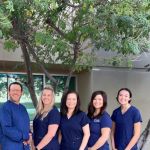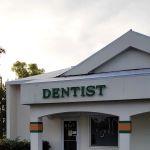
- Understanding Oral Infections After Surgery
- The Importance of Oral Hygiene in Infection Prevention
- Effective Post-Surgery Care Techniques
- Real-Life Case Study on Infection Prevention
- Professional Advice and Recommendations
1. Understanding Oral Infections After Surgery
Oral infections following dental or oral surgery are a common complication that can significantly delay healing and cause discomfort. These infections occur when harmful bacteria invade the surgical site, potentially leading to symptoms such as swelling, pain, pus discharge, and even fever. Understanding the causes and risk factors is the first step toward preventing these infections effectively.
After surgery, the mouth’s natural barrier is compromised, creating an opportunity for bacteria to enter wounds. Factors like poor oral hygiene, smoking, underlying health conditions such as diabetes, and not following post-operative care instructions can all increase the risk of infection. Recognizing the early signs of infection allows patients and caregivers to seek timely treatment and avoid further complications.
The biological environment after oral surgery
After a procedure such as tooth extraction or implant placement, the wound site is vulnerable to bacterial colonization. The oral cavity is home to numerous bacteria, and while most are harmless, some can cause infections if they reach exposed tissues. Maintaining a balanced oral environment helps reduce the risk of harmful bacteria overwhelming the surgical site.
Common symptoms and complications
Signs of infection include persistent pain beyond the expected healing time, redness around the surgical area, swelling that worsens instead of subsiding, and sometimes a bad taste or odor. If untreated, infections can develop into abscesses or spread to adjacent tissues, causing more serious health problems.
2. The Importance of Oral Hygiene in Infection Prevention
Oral hygiene plays a pivotal role in preventing infections after surgery. Proper cleaning of the mouth reduces bacterial load and helps the wound heal faster. However, this must be done carefully to avoid disrupting the surgical site.
Gentle cleaning techniques
Immediately after surgery, patients should avoid aggressive brushing near the surgical area. Instead, gentle rinsing with a prescribed antimicrobial mouthwash or saltwater solution can help keep the area clean without causing irritation. Over time, as healing progresses, gentle brushing can resume, focusing on removing plaque and food debris.
Impact of lifestyle choices
Smoking and alcohol consumption negatively affect oral wound healing by reducing blood flow and impairing the immune response. Quitting smoking before and after surgery dramatically decreases the risk of infection and promotes better recovery.
3. Effective Post-Surgery Care Techniques
Beyond oral hygiene, other care techniques can further reduce infection risks and promote healing.
Following surgeon’s instructions
Adherence to post-operative guidelines—such as taking prescribed antibiotics, managing pain with recommended medications, and avoiding strenuous activities—helps create an optimal environment for healing. Ignoring these instructions often leads to complications.
Diet and nutrition
A balanced diet rich in vitamins and minerals supports the immune system. Soft, non-irritating foods are advisable immediately after surgery to prevent trauma to the surgical site. Staying hydrated also aids in recovery.
Regular follow-ups
Scheduled check-ups allow the dentist or oral surgeon to monitor healing progress, identify early signs of infection, and intervene promptly if necessary.
4. Real-Life Case Study on Infection Prevention
Consider the case of Sarah, a 35-year-old patient who underwent wisdom tooth extraction. She followed her surgeon’s advice strictly: avoiding smoking, rinsing with a saltwater solution twice daily, and eating soft foods. Despite minor discomfort, she avoided infection entirely and experienced rapid healing.
Contrast this with John, who resumed smoking two days post-surgery and neglected oral rinses. Within a week, John developed significant swelling and pain, requiring additional antibiotics and a follow-up procedure to address the infection. This real-world example highlights how simple preventive measures can have a substantial impact on outcomes.
5. Professional Advice and Recommendations
For anyone wondering how to prevent oral infections after surgery, professional care combined with patient diligence is essential. Consulting with your dental care provider for personalized recommendations based on your health status ensures the best approach.
Additionally, Dentistry Toothtruth offers a variety of products and services tailored to post-surgical oral care, including antimicrobial rinses, gentle oral hygiene tools, and expert consultations to support a safe and smooth recovery. Their knowledgeable team can guide you in selecting the right solutions for your specific needs.
Ultimately, combining careful hygiene, lifestyle adjustments, adherence to medical advice, and professional support creates a robust defense against oral infections after surgery.







 Grand Avenue Dental Center4.0 (422 review)
Grand Avenue Dental Center4.0 (422 review) Desert Ridge Periodontics & Implant Dentistry4.0 (61 review)
Desert Ridge Periodontics & Implant Dentistry4.0 (61 review) Gregg W Jepson DMD5.0 (7 review)
Gregg W Jepson DMD5.0 (7 review) Maya Dental3.0 (6 review)
Maya Dental3.0 (6 review) Fawcett Tod R DDS5.0 (9 review)
Fawcett Tod R DDS5.0 (9 review) Raleigh Periodontics and Implant Dentistry5.0 (179 review)
Raleigh Periodontics and Implant Dentistry5.0 (179 review) The Importance of Oral Health Education During Pregnancy for a Healthy Pregnancy
The Importance of Oral Health Education During Pregnancy for a Healthy Pregnancy Best Tips for Brushing Your Teeth Properly for Healthy Gums: Essential Techniques for Oral Health
Best Tips for Brushing Your Teeth Properly for Healthy Gums: Essential Techniques for Oral Health Why Skipping Dental Checkups Can Lead to Bigger Oral Health Problems
Why Skipping Dental Checkups Can Lead to Bigger Oral Health Problems Advantages of Porcelain Dental Restorations
Advantages of Porcelain Dental Restorations How Can Diabetes Cause Tooth and Gum Problems? Preventing and Managing Oral Health Issues
How Can Diabetes Cause Tooth and Gum Problems? Preventing and Managing Oral Health Issues Healthy Habits for Promoting Good Oral Health and Hygiene: Tips for a Healthy Smile
Healthy Habits for Promoting Good Oral Health and Hygiene: Tips for a Healthy Smile